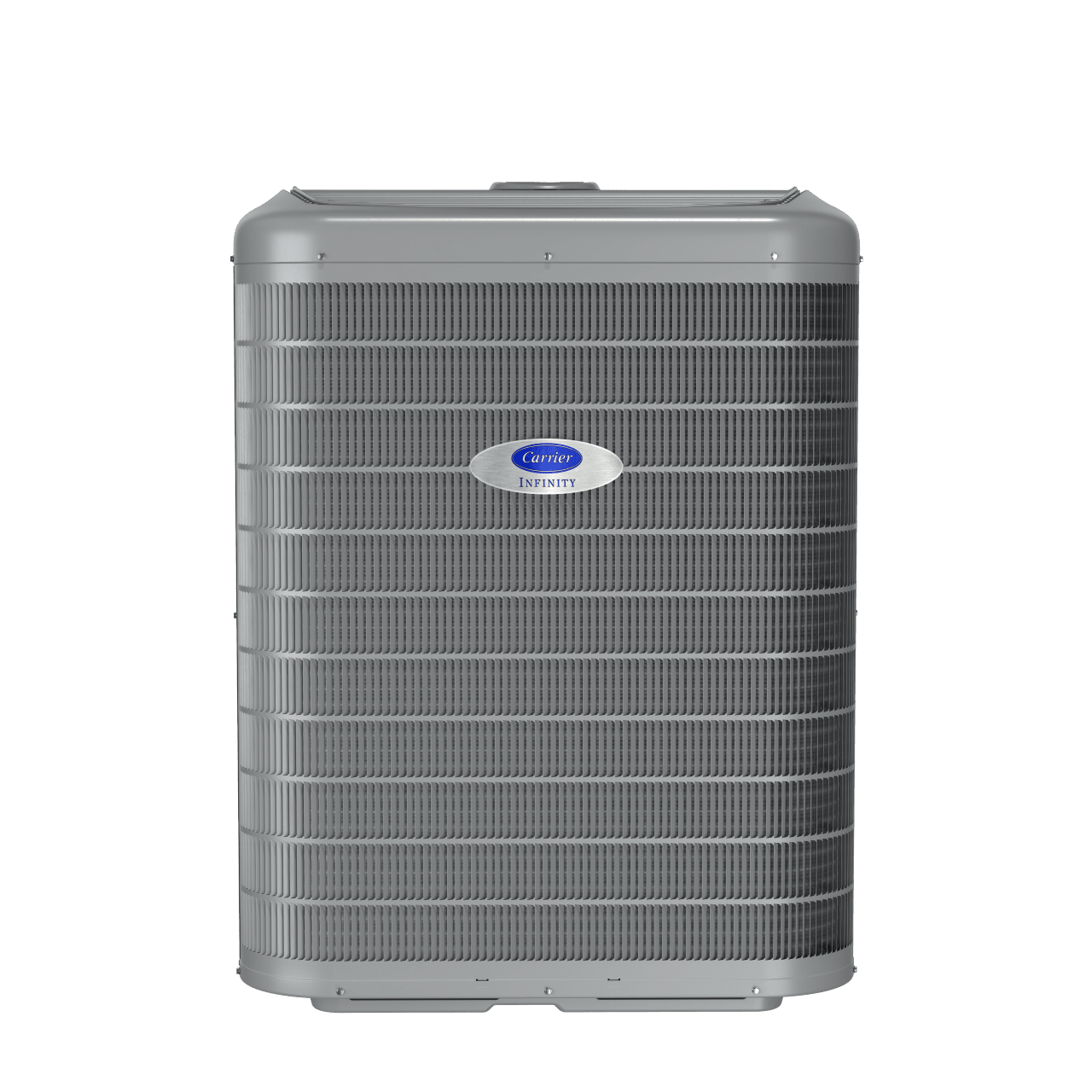Homeowners Guide to Energy-Efficient Air Conditioning Units
Energy efficiency is a crucial factor to consider when selecting an air conditioning system, as it directly impacts your cooling bills and the environment. An energy-efficient air conditioning system uses less electricity to cool your home, which helps reduce overall energy consumption and lowers your carbon footprint. By investing in energy-efficient air conditioning from Carrier, you can enjoy optimal comfort while saving money in the long run.
3 Benefits of an Energy-Efficient AC
1. Cost Savings
2. Environmental Benefits
3. Better Air Quality

Energy Efficiency Defined
ENERGY STAR®
Energy Efficiency Ratio (EER2)
Seasonal Energy Efficiency Ratio (SEER2)
How To Choose an Energy-Efficient Air Conditioner
- Home Size: The size of your home is one of the most important factors in selecting an energy-efficient air conditioning unit. Larger homes will require a higher tonnage unit, while smaller homes can benefit from a smaller tonnage unit that still offers efficient performance.
- Climate: The climate in your area plays a significant role in how much you’ll rely on your AC. If you live in a region with hot, humid summers, choosing a system with a higher SEER2 or EER2 rating will ensure it can handle the demand while maintaining efficiency.
- Maintenance: Regular maintenance is essential to keeping your system running efficiently. Some models require more frequent servicing, so it’s important to choose a system that fits your ability to schedule maintenance.
- Budget: While energy-efficient air conditioning units can be more expensive upfront, they can offer savings over time through reduced heating and cooling bills. Consider your initial investment in relation to the long-term savings to ensure the unit fits within your budget.

How to Improve the Efficiency of Your A/C
1. Perform Regular Maintenance
- Replace Air Filters: Clogged filters restrict airflow, forcing your AC to work harder, increasing energy costs. Check and replace filters regularly, aiming for every 1-3 months.
- Clean Condenser Unit: A clean outdoor condenser unit allows the AC to cool more efficiently, preventing it from becoming overworked.
- Vacuum Vents: Ensure vents are free of dust and debris to allow for optimal airflow throughout the system.
- Check and Seal Ducts: Leaky ducts can cause significant energy loss. Inspect and seal any leaks to prevent wasted energy.
2. Optimize Your Home Environment
- Ensure Proper Ventilation: To keep your home comfortable, make sure vents are open and not blocked.
- Close Curtains and Blinds: During the hottest parts of the day, close curtains and blinds to block sunlight and reduce heat buildup.
- Use Ceiling Fans: Ceiling fans can help circulate air, making you feel cooler and reducing the need for AC to work as hard.
- Close Off Unused Rooms: To maintain high efficiency, close the door and vents of unused rooms to prevent them from being cooled unnecessarily.
- Use Natural Ventilation: Open windows in the evening or early morning to take advantage of cooler temperatures.
- Limit Heat-Producing Appliances: Avoid using heat-generating appliances like ovens and dryers during peak hours to reduce the load on your AC.
- Plant Trees: Planting trees around your home can provide shade, reduce the heat load on your AC, and help to lower your cooling bills.
3. Invest in a Smart Thermostat

Energy Efficiency Rebates and Tax Credits
Get an Energy Efficient Air Conditioner from Carrier Today

Common Questions about AC Energy Efficiency
Explore Carrier Air Conditioners
Carrier air conditioners are known for their reliability, energy efficiency, and advanced technology. With a range of models to suit different needs, Carrier offers solutions with optimal comfort and air quality. Whether you're looking for a budget-friendly option or a high-end, energy-efficient unit, Carrier’s air conditioners provide consistent performance, quiet operation, and innovative features.
Up to 21 SEER2 for premium energy savings with premium comfort features
Up to 16.5 SEER2 for enhanced energy savings with standard comfort features.




